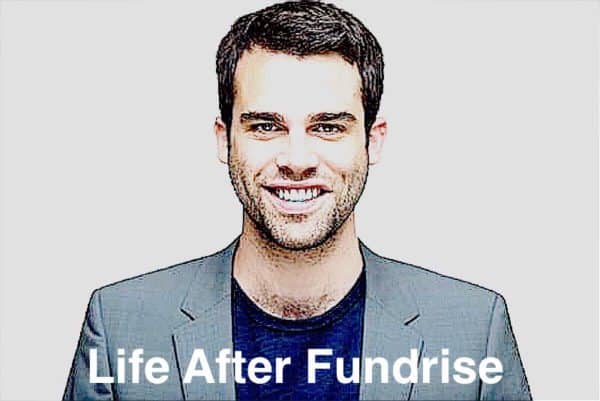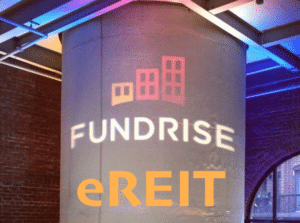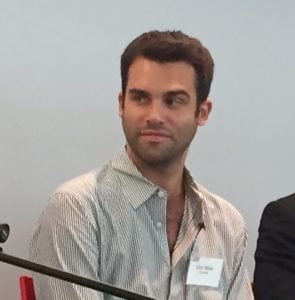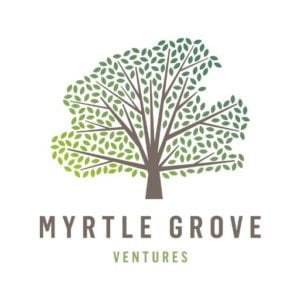
Fundrise deserves much credit for being a trailblazer in the real estate crowdfunding sector of finance. Officially launched in 2012, the concept of Fundrise was crafted before the JOBS Act even existed. Entrepreneurs and brothers, Ben and Dan Miller, conceived a plan to allow residents of Washington, DC to invest in projects based in the nation’s capital. Using old Regulation A, a cumbersome securities exemption that took more than a little bit of work to get through regulatory approval, Fundrise was doing crowdfunding before most of the world even knew it existed. Since those early days, many projects have been funded on the Fundrise platform and many things have changed.
 Boosted by a significant investment by Renren, founded by Chinese entrepreneur Joseph Chen, Fundrise was quickly capturing alternative finance headlines by participating in projects like the World Trade Center in Manhattan.
Boosted by a significant investment by Renren, founded by Chinese entrepreneur Joseph Chen, Fundrise was quickly capturing alternative finance headlines by participating in projects like the World Trade Center in Manhattan.
In October of 2015, co-founder Dan Miller, based in New York City, departed Fundrise. Crowdfund Insider reached out to Fundrise for information as to why he had left but received no response. Several weeks later, Fundrise announced their intent to launch the very first “eREIT” investment product. In a nutshell, by using updated rules under Regulation A+, or Title IV of the JOBS Act, Fundrise would create a diversified fund to invest in specific sectors of real estate. The eREIT structure provides access to a crowdfunded asset class with predicted solid returns at a potentially lower cost point. Since the end of 2015 Fundrise has largely exited the single property crowdfunding space by focusing solely on a growing number of eREIT verticals.
Several months back, Crowdfund Insider reached out to Dan Miller to get a status report on what he was doing. We had heard he had launched a new venture called Myrtle Grove Ventures, but beyond the description on the website, few details were made available. According to the home page, Myrtle Grove is a global investment holding company with interests in technology, finance and real estate.
 Earlier this month, Crowdfund Insider finally caught up with Dan. The first question, of course, was to ask why he departed Fundrise.
Earlier this month, Crowdfund Insider finally caught up with Dan. The first question, of course, was to ask why he departed Fundrise.
Dan, who still owns 20% of Fundrise but is not on the Board, explained he is really an entrepreneur at heart and loves creating things. He went on to explain that, while the shift to the eREIT was part of his decision to move on, he currently has “a bunch of other projects he is interested in.”
“Fundrise will be a very successful business,” stated Dan.
Asked about the state of the real estate crowdfunding industry in general, and the apparent slow-down, Dan explained;
“Everything was so good for 5 years (that) people were not prepared for the change. Now people are going to have to earn it. For firms that were prepared for it it is a blessing. Similar to what happened to eCommerce in the late 90s [during the tech boom] there were a lot of platforms and a handful came in and consolidated…Long term, I think it is positive. Short term, I think it’s making people nervous but that is where I think there is opportunity.”
Short term, Dan sees some nervousness in the sector but also believes this creates opportunity for better established platforms.
Consolidation?
 Asked if he is aware of any consolidation happening now, Dan stated;
Asked if he is aware of any consolidation happening now, Dan stated;
“It has not started yet. It will happen as companies run out of cash. Going forward it will be difficult for some companies to raise capital. They will look for some sort of exit. I think everyone is looking at the balance sheet and trying to right size it. I think that institutions, other firms will be looking at acquisitions. That type of capital is a few years away from getting into the industry on the real estate side.”
Dan hears that some developers have been having problems finding good opportunities. A lot of firms saw this coming. Now “the easy money is gone.” Of course, the global challenges do not help either. Uncertainty always equals risk.
“The person [real estate investor] that came in and paid 20% more and closed in a few weeks is not happening anymore. It does not yet feel like a real crisis. Things have gotten more tight and more focused.”
Dan believes the global urban thesis is played out for now. He posed the rhetorical question, asking where the next real estate thesis will be. What are the factors that will define growth over the next several years?
 Switching topics to Myrtle Grove Ventures, Dan explained that his new entity is a holding company with operating businesses including his ownership stake in Fundrise. Going forward, Dan will focus on three specific themes where he believes opportunities exist.
Switching topics to Myrtle Grove Ventures, Dan explained that his new entity is a holding company with operating businesses including his ownership stake in Fundrise. Going forward, Dan will focus on three specific themes where he believes opportunities exist.
First, he believes the legislative / regulatory changes that are occuring around the world are creating opportunities to bring similar internet finance techniques to other countries. He noted that the UK was first out of the gate but other countries, such as New Zealand, France, countries in Asia, are moving forward now.
Addressing Title III of the JOBS Act, he described Reg CF as “pretty incredible.” While acknowledging the fact that many people consider it unworkable, Dan said there was real opportunity on the retail side;
“A huge portion of the population was [previously] cut out. 99% of businesses could not raise capital and a majority could not invest. SMEs raising a few hundred thousand dollars – this is something you could not do before.”
Finally, Dan pointed to the different asset classes that are benefitting from internet finance. He predicts that ten to twenty years down the line people will look back and say this was a big moment.
“Real estate caught a lot of wind early in crowdfunding. I think there are a lot of other industries that will work for crowdfunding . Most industries outside of real estate have not yet captured that.”
Dan stated that in the coming months he will be forming operating companies to take advantage of Title III. He will leverage his experience at Fundrise to manage the compliance and infrastructure to make things work.
“I plan to launch a platform next year,” declared Dan.
Without tipping his hand to specific verticals, Dan offered his opinion expressing that crowdfunding will not be dominated by a single global platform. Platforms require local brand building and local knowledge of rules and culture. It also requires real investment and focus and this is something Dan appears ready to do. He described his plans as “ambitious but a real opportunity.”
Mentioning several different countries, including Singapore, Dan said, “I think these places will be global [Fintech] hubs.”
“You will still have regulatory licenses and will still need staff but similar structures. NYC is the hub in the US. London is Europe’s hub. Sydney in Australia. Singapore in Asia.”
 Dan will launch something in the US first and then, perhaps, Europe. He is doing a “lot of research right now.”
Dan will launch something in the US first and then, perhaps, Europe. He is doing a “lot of research right now.”
Dan pointed to the evolving regulatory environment in the US as making things complicated by not having much clarity in compliance.
“It is pretty high barrier…. it is making some people nervous…,” said Dan.
Asked if he was looking at doing a white label platform, Dan said he was not going to focus on this sector for now, even though he has had a lot of outreach requesting such a service. He does believe there is opportunity in the white label platform sector as he does not believe investment managers are inclined to do create platforms in-house.
“I am young enough that I can take a longer view,” said Dan. “The Existing financial system serves large organizations very well but it is terrible for small and mediums enterprises and small investors. When you allow everyone to move online it really becomes efficient. If you think about it, coordinated global legislation, which is happening right now, is pretty amazing. Short term there will be some difficulties but the firms that make it out of this will have a really strong position over the next 10 to 20 years. Look at social media that started so small. As it grew and doubled every year it became something substantial. That same exponential growth will occur with consumer driven platforms. The existing market will stay where it is now but the online sector will grow.”
Dan explained how Fundrise went headfirst into something that was difficult with the first Reg A offer. Perseverance was vital to their early success. He shared the story of filing reams of paper documents to perplexed officials to set up their first crowdfunded offers. Bootstrapping his current venture, he still has the same motivation to push forward and challenge established financial norms now.
He stated: “If you take a ten- to twenty-year view this is going to be very valuable.”

